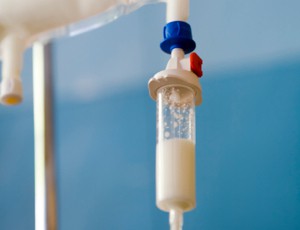Challenges of long-term home parenteral nutrition

Patients receiving long-term home parenteral nutrition (HPN) and clinicians managing their care face complex challenges not fully addressed by existing clinical practice guidelines” Kumpf (2019). Abstract: Patients receiving long-term home parenteral nutrition (HPN) and clinicians managing their care face complex challenges not fully addressed by existing clinical practice guidelines. This review aims to increase awareness […]
Administering intravenous therapy in patients’ homes

This article looks at the practicalities of administering home IV therapy… Payne (2019). Abstract: Intravenous therapy in patients’ homes is a relatively new procedure in the community nursing practice. This article looks at the practicalities of administering home IV therapy from the following aspects: hand hygiene; how to adjust IV therapy practices to the home […]
Home parenteral support in patients with incurable cancer

It is uncertain if home parenteral support (HPS) is of advantage in patients with incurable cancer and intestinal failure, functional obstruction or severe malabsorption” Obling et al (2018). Abstract: PURPOSE: It is uncertain if home parenteral support (HPS) is of advantage in patients with incurable cancer and intestinal failure, functional obstruction or severe malabsorption. From […]
What is the impact of home parenteral nutrition on hospital re-admission

Unplanned re-admissions for patients with IF accounted for a third of all hospitalisations in those on HPN and the majority were due to CRBSI” Burden et al (2018). Abstract: INTRODUCTION: Home parenteral nutrition (HPN) provides fluid and nutrition essential for the survival of patients with type 3 intestinal failure (IF). However, it is associated with […]
Implementation of smart pump technology with home infusion providers

While hospitals have adopted smart pump technology (SPT) featuring drug libraries and medication safety software, most home infusion providers (HIPs) continue to use traditional infusion pumps that don’t offer drug libraries or medication safety software” Brown et al (2018). Abstract: While hospitals have adopted smart pump technology (SPT) featuring drug libraries and medication safety software, […]
Long-term study reviews infective vascular access outcomes associated with home parenteral nutrition

The aim of this study was to evaluate catheter-related complications of CVC in patients receiving HPN” Santacruz et al (2018). Abstract: OBJECTIVE: Home parenteral nutrition (HPN) has become a common therapy, with tunneled central venous catheters (CVCs) being the preferred route of administration. Peripherally inserted central catheters (PICCs) have been used increasingly, but whether they […]
Meta-analysis of hospital-to-home interventions for children

Hospital-to-home transitions are critical opportunities to promote patient safety and high-quality care. However, such transitions are often fraught with difficulties associated with increased health care use and poor patient satisfaction” Hamline et al (2018). Abstract: CONTEXT: Hospital-to-home transitions are critical opportunities to promote patient safety and high-quality care. However, such transitions are often fraught with […]
Home parenteral nutrition patients participate in an international study on quality of life

The aims of this study were: to re-assess the basic psychometric properties of the HPN-QOL© in a multinational sample of adult patients; to provide a description of QOL dimensions by short and long HPN treatment duration; to explore clinical factors potentially associated to QOL scores” Baxter et al (2018). Abstract: BACKGROUND & AIMS: Home parenteral […]
Impact of home parenteral nutrition on improving quality of life

To assess the effectiveness of home parenteral nutrition (HPN) in improving survival and quality of life in people with inoperable MBO” Sowerbutts et al (2018). Abstract: BACKGROUND: People with advanced ovarian or gastrointestinal cancer may develop malignant bowel obstruction (MBO). They are able to tolerate limited, if any, oral or enteral (via a tube directly […]

